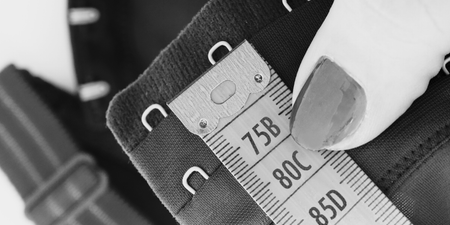Generalised Anxiety Disorder (GAD), effects 3% of the population – about 80,000 people in Ireland.
It is habitual, can be life-long, and is associated with anxiety and depression.
It’s something we’ve come across time and time again from our readers so we spoke to Dr. Keith Gaynor, Senior Clinical Psychologist at Saint John of God Hospital to curate practical tips to manage your worries.
Dr. Gaynor says:
“The issue with worry is pre-empting future problems and doing nothing about them leaving the person feeling anxious. Examining a future problem and doing something about it there and then is a good idea and stops the feeling of worry from escalating any further. Worrying is something internal, private and passive.”
He provides some practical tips on how to teach ourselves to worry less.
Don’t waste time on ‘What if’s’.
Don’t waste time thinking up situations that ‘might’ happen, but in reality are quite unlikely to happen – that is just a misuse of time. Try to pinpoint when you start asking yourself these questions. The majority of the scenarios you create using this approach are never likely to happen – so why waste your time thinking about them?
Create a worry diary.
Take a diary, a paper one or on your phone, and in it mark an asterisk every time and place you worry and guesstimate how long you worried for. This is important for two reasons. Firstly, it makes us aware of a process that may have been automatic until now. We need to notice how frequently we worry and most people will be shocked at what they see. Secondly, we need to pinpoint those occasions when we worry the most because these are the times we are going to target.
Starve worry of space and time.
If we want to reduce the amount of time we worry, we need to starve it of time and space in our lives. We need to look at those key times we marked earlier, in our diaries, and add more stimulation. We need to shift our attention from the internal (worrying) to the external (finding a solution).
Get lost in something different.
Don’t let yourself be overcome with worry. The trick to forgetting your worries is to replace them with something else. Exercise, take a class in something like art, yoga or read a book. Nothing festers worry more than an idle mind.
Problem solve, don’t worry.
Worrying is normally a very inefficient attempt to problem solve. So when you worry, try to turn this into useful problem solving by considering what you need to do now to deal with the problem. Decision making is a core skill to combat worry.
Learn to accept uncertainty.
Uncertainty is a fact of life, so try to accept that you will always have to live with, or tolerate some uncertainty. Unexpected things happen, and accepting this in the longer term will make your life easier and reduce your anxieties.
Go to sleep early.
Sleep is the ultimate healer. Nothing can make a molehill look like a mountain more than lack of sleep.
Don’t Google it.
We are all guilty of Googling our ailments, but when the ailment itself is worry there is no point is self-diagnosing as it will only feed the anxiety. While the internet is an amazing resource to find helpful information, you can find a negative response for every positive, helpful result. Panicky Google searches almost always end badly. This leads to the next point…
Talk to someone.
Sometimes, it really helps to just get it all out.
Be kind to yourself.
Stay in the moment. Spending most of your time worrying about things that might happen in the future means that you’ll spend less time enjoying the present and staying in the moment. Acknowledge the worries that enter your head, but don’t engage them, try to refocus on what you are doing in that moment. Put all the energy into something positive and productive instead.
Dr. Gaynor will be presenting these tips and more advice at Saint John of God Hospital’s second lecture of its 2016 Public Lecture Series. The lecture entitled “Don’t Worry, Be Happy” is free to attend and will take place from 8.00pm to 9.30pm on Monday 11th April in the St. John of God Hospital Campus on the Stillorgan Road, Dublin.



















































